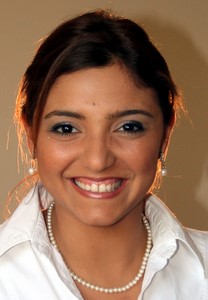This week at OLnet we are having a pilot virtual workshop (twitter #olnetvw). The aim of the workshop is to promote reflective practice within the OLnet team, and also to enable us to come up with an approach to run virtual workshops.
We are taking a closer look at the UNESCO OER Toolkit, at the same time looking at other OER resources aimed at the community, such as the OER Handbook and the OpenLearn Research Report 2006-2008. The programme of the workshop can be found here.
In our discussion of the toolkit, I started by raising the question of what it is proposing itself to do. Here is a copy of my post in our virtual workshop page:
“I thought it was very interesting reading the UNESCO OER toolkit. I allocated 10 min this morning and went through sections A and B of the document, and I realised I was taking a lot for granted about it.
First of all, I did not know the doc was targeting developing countries. I thought it was just a nice and creative attempt to make available ‘OER-How to’ knowledge to all. It was definitely a surprise to me.
I wonder however whether there is a misconception in the doc – the assumption that practitioners in the so called ‘developed world’ already know how to use OER. Do they?
I do not think so. Despite the fact that the OER movement was initiated by more privileged societies (due to the funding received), I believe the take up is still very timid. Often, practitioners argue they do not feel confident in changing content developed by others, or they do not seem to find the time to do so. Some of them have not even heard of OER… or struggle with the technologies. That is why it feels odd to think of a toolkit developed to the developing world….
UNESCO’s initiative with the OER Toolkit is undoubtedly to be praised, and the work of all the collaborators too. I have read just a few sections of it so far but I can already see its potential. It is a document that can be changed and adapted to suit different audiences, and the fact that it is published in a wiki helps.
But to what extent has this toolkit taken into consideration the reality of the developing world? I did not find this reflection appropriately developed in the doc anywhere yet. So far, using the doc’s own language, it is all very ‘anecdotal’.
I would like to know more about how it came to be the case that the toolkit should focus on the developing world. Is it just because it ‘sounds good’ and is in line with the overarching altruistic proposition of the movement? And if not, how do we know we are offering the developing world what they need?”
I am playing a little bit of a devil advocate here I know, but I believe that many times in the OER movement we act based on assumptions. Not to say that it is wrong, but is it enough?
Filed under: OLnet - Open Learning Network, OLnet virtual workshops on OER, Open Educational Resources | Tagged: #olnetvw, OER research, OLnet, OLnet pilot virtual workshop, UNESCO OER Toolkit | 2 Comments »



